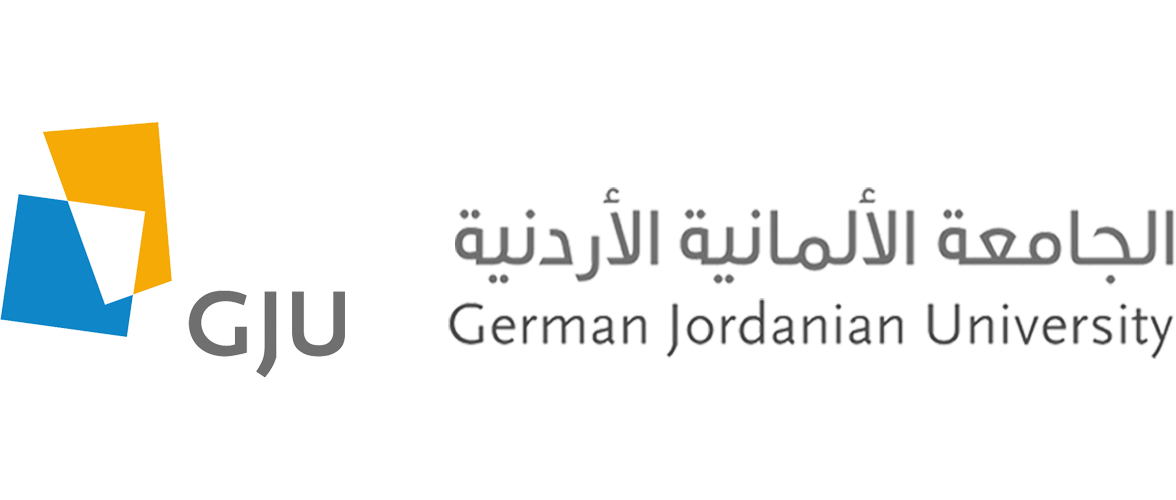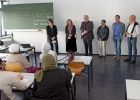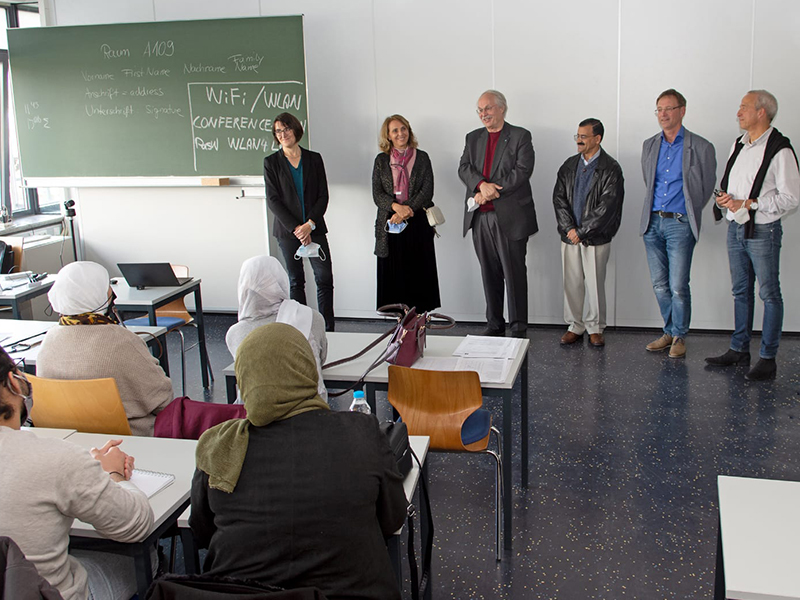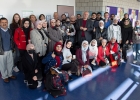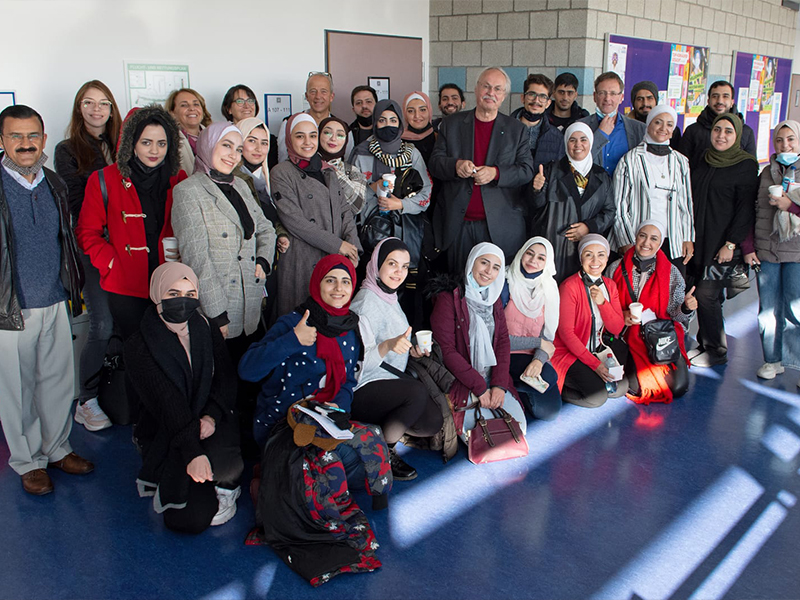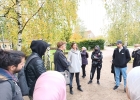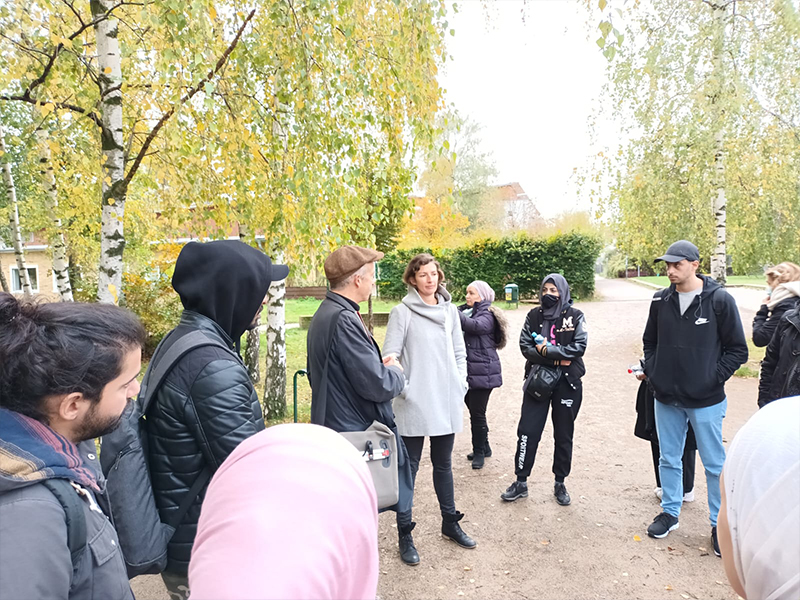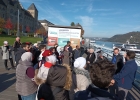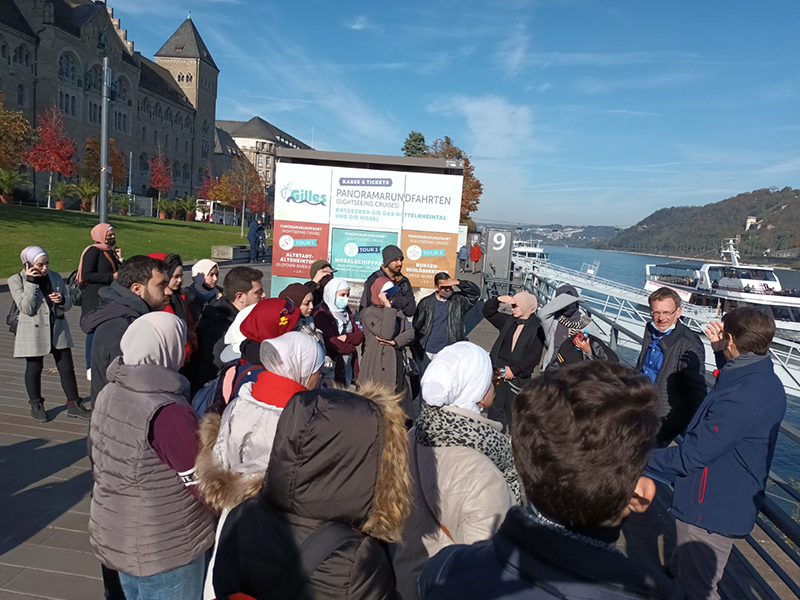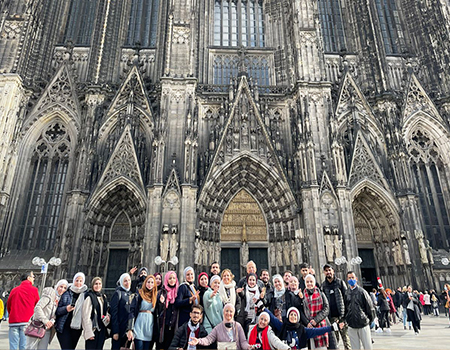
With a grant supported by the German Academic Exchange Service (DAAD), students from the Faculties of Natural Resources Engineering and Architecture participated in a joint project with Koblenz University of Applied Sciences in Germany called “Cities Resilient and Climate Change Challenges”. The visit included, according to the project manager, Dr. Mona Hindiyeh, scientific lectures in the field of transportation and its impact on carbon emissions, sponge cities to contain floods, and scientific visits to the Transportation Department in Koblenz, where students were introduced to the most important techniques used in reducing emissions and gases that contribute to Environmental pollution from the products of combustion. In addition,, the group learned about the latest action taken by the Transportation Department to reduce dependence on private transportation and maximize the use of public transportation.
The delegation also visited the German city of Cologne and was briefed on modern architecture systems in reducing energy use, reaching the concept of green cities, and modifying engineering systems to adapt to modern climate changes.
The delegation also visited the Ahrtal, a region which was heavily impatced by a natural disaster and floods last summer, which led to human and material losses. The region is currently under reconstruction, the delegation also watched a presentation and took part in a scientific lecture after the floods, delivered by an engineer specialized in the field of disasters from Ahrtal.
At the end of the scientific trip, the students participated in a bicycle tour to see the pedestrian and bicycle systems adopted in the city, which had a significant impact on the students in design, traffic awareness, and the mechanism of bicycles’ contribution to reducing gaseous emissions that harm the environment.
The project coordinator, Dr. Ayman Batayneh from the Department of Renewable Energy Engineering, pointed out the importance of these projects for the benefit of the students. The visit points out the importance of benefiting from the experiences of developed countries in providing environmental solutions, to control the effects of climate change whose impact has become evident on various countries of the world and the need for joint efforts and awareness raising.
Dr. Omaima from the Department of Architecture, who accompanied her students, explained that the workshop was scientifically and culturally useful by transferring knowledge to students and exchanging Eastern and Western cultures.
